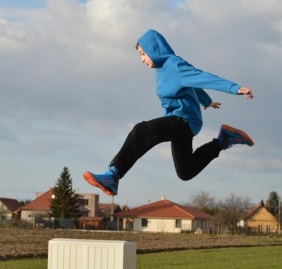 I set the bar high for myself and for the graduate student candidates I teach because the stakes are so high for our preK-12 students and teachers. As educators we understand that all children deserve a first-class education—an opportunity to learn, grow, and achieve the most they can in order to live healthy, productive, and satisfying lives. Classroom teachers and specialists also deserve a coteacher with whom to navigate the ever-changing requirements for their work and ever-increasing needs of our shared students. The school librarian can be that educator—that coteacher.
I set the bar high for myself and for the graduate student candidates I teach because the stakes are so high for our preK-12 students and teachers. As educators we understand that all children deserve a first-class education—an opportunity to learn, grow, and achieve the most they can in order to live healthy, productive, and satisfying lives. Classroom teachers and specialists also deserve a coteacher with whom to navigate the ever-changing requirements for their work and ever-increasing needs of our shared students. The school librarian can be that educator—that coteacher.
Last week, I attended the Association for Library and Information Science Education (ALISE) Conference. This year’s theme was: “Mirrors and Windows: Reflecting on Social Justice and Re-Imagining Library Science Education.” The term “social justice” is related to the fair distribution of wealth, opportunities, and privileges in a society. People who enact the principles of social justice work to ensure that all individuals have opportunities to contribute to society and receive the full benefits of societal membership.
Social justice is a thread that is woven into the professional values of librarians. Concepts such as “equal access,” “diversity,” and “inclusion” are central tenets of librarianship. School librarians have the opportunity and responsibility to help educate ALL young people, particularly those who are members of social, cultural, and racial subgroups.
Teaching for social justice reflects an essential purpose of teaching in a democratic society and involves advocacy for social change (Sleeter and Grant). With an ever-increasing number of children and youth living in poverty, without healthcare, and/or who are homeless, the need for activism to address inequities is also ever-increasing. Literacy education and access to information are pathways for underserved young people and families to improve their life circumstances.
I believe that all educators, and school librarians in particular, who understand the power of literacy and knowledge can become activists who have a calling to work toward removing societal barriers and inequities. That is why I set the bar high for myself and for the graduate students I teach. Together, with passion, compassion, knowledge, and understanding, we can advance equality and democracy and help our nation’s youth empower themselves through literacy.
Works Cited
DeduloPhotos. “DSC_0042.JPG.” Digital Image. Morguefile. Web. 02 February 2015. <http://mrg.bz/ziIMjB>.
Sleeter, Christine. E., and Carl A. Grant. Making Choices for Multicultural Education: Five Approaches to Race, Class, and Gender. 6th ed. Hoboken, NJ: Wiley & Sons, 2009. Print.
